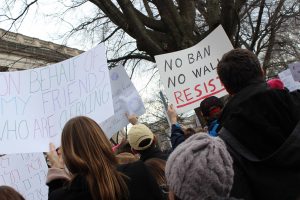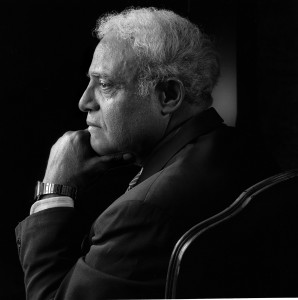On October 5, 2017, the Hooks Institute released its third edition of its policy papers titled, Bending the Arc Toward Justice: Including the Excluded. This edition focused on the positive impact of immigrants in a small Arkansas town; government policies which create welfare dependency in Oglala Sioux Tribe (South Dakota) and south Memphis, TN; rollback of LGBT gains by the Trump Administration; and the history of Islam and Muslims in America, the distortion of that history, and successful efforts by diverse communities in Memphis, TN to collaborate with the Muslim community. The Hooks Institute hopes that these papers will encourage thoughtful discussion, policy, and action that will sustain and enhance civil and human rights, and social justice for all in our nation. A link to the complete publication is provided at the end of the foreword.

To protect and expand human and civil rights in these perilous times, we must remain vigilant and form alliances with people and organizations across diverse ideological perspectives. On September 5, 2017, as these policy papers were being prepared for publication, the Trump administration ended the Deferred Action for Childhood Arrival (DACA) program created by an executive order from the Obama administration. This program allowed undocumented immigrant children in the United States who had been brought here illegally by others and who had not been convicted of criminal offenses to attend school, work, or serve in the military, and obtain driver licenses without fear of deportation for renewable two-year periods. The reasoning behind DACA was that undocumented immigrant children should not be punished for the actions of others, but rather should be provided opportunities to become contributing members of society.
It is now in the hands of Congress to decide, in what form, if any, DACA continues. While Congress must tackle the complex issue of developing sound and fair immigration legislation for the nation, the manner in which DACA was terminated by the Trump administration evidenced a strong disregard for the welfare of immigrant children who obeyed the laws, pursued educational opportunities, and who have, and are making, significant contributions to the United States.
DACA is only one of many disturbing events in the nation that show racism, if not intolerance, against immigrants, minorities, Jews, and Muslims. This environment has been fueled by the rhetoric and actions of President Trump, white supremacists, and those who know better but remain silent out of fear, or for personal or political gain. We cannot remain silent in the face of these challenges. Dr. Martin Luther King Jr. wisely counseled that “the arc of the moral universe is long, but it bends toward justice.” However, this arc is not going to bend itself. Each of us must work to ensure that justice prevails through our sustained activism and vigilance.
We cannot remain silent in the face of these challenges. Dr. Martin Luther King Jr. wisely counseled that “the arc of the moral universe is long, but it bends toward justice.” However, this arc is not going to bend itself. Each of us must work to ensure that justice prevails through our sustained activism and vigilance.
As we navigate these times, we must also reach across the aisle to engage with people of different political, racial, and ideological views to bridge the great divide that is feeding the growing cancer of mistrust, resentment, racism, and hate in our nation and world. We must work to eliminate racial inequality, bigotry, anti-Semitism, discrimination against immigrants, lesbian, gay, bisexual and transgender (LGBT) groups, and to uplift the poor, a group that includes whites, African Americans, and many others. Each of us has a respective sphere of influence that we can activate through educational outreach, community engagement, activism, writing, research, and scholarship or political action.
With this third edition of policy papers, the Benjamin L. Hooks Institute for Social Change at the University of Memphis (UofM) seeks to expand the net of civil and human equality through overviews of complex issues through scholarly research and policy recommendations.
Michael R. Duke (Department of Anthropology, UofM) looks at the challenges and opportunities of immigrants from diverse countries who have settled in the small city of Springdale, Arkansas. These immigrants work in the poultry industry, in jobs that few whites will take. The poultry industry supports this labor force, a bright spot exists for upward mobility of immigrants, and there is greater integration and cultural exchange between immigrants and whites. Springdale, Arkansas represents, to some extent, a success story of immigration in that community.
Peter A. Kindle (Department of Social Work, University of South Dakota) examines how intergenerational poverty and reliance on welfare by the Oglala Sioux Tribe in South Dakota is rooted in historical discrimination and bad government policies. Kindle compares the experiences of these Native Americans with the history of racial, social, and economic oppression of African Americans in the South Memphis. His examination of these two communities shows similarities rooted in historical discrimination and failed government approaches.
Idia B. Thurston (Department of Psychology, UofM) examines both the legal, social, and policy advancements made by the LGBT community, the aggressive challenges underway to undermine these gains, and she proposes initiatives to sustain and support this community.
Finally, Nabil A. Bayakly (Department of World Language and Literature, UofM) provides an in-depth overview of Islam, which embraces peace and love of one’s neighbor. He explores how Islam has been distorted both by terrorist acts and by a lack of understanding in many communities about Islam and the Muslims.
The Hooks Institute hopes that the information provided in these policy papers will encourage community members, activists, individuals, businesses and legislators to examine the issues presented here and to engage in action that is intended to uplift their communities. There is much work to be done, in this nation and abroad, on human and civil rights. As we work to root out injustices, we must, in the words of our namesake, the late Benjamin L. Hooks, “face the future unafraid.”
Daphene R. McFerren, JD
Executive Director Benjamin L. Hooks Institute for Social Change
Elena Delavega, PhD
Associate Director, Benjamin L. Hooks Institute for Social Change
Associate Professor, Department of Social Work
Photograph credit: 2017.03.07 #MuslimBan 2.0 Protest, Washington, DC USA 00805. Photo by Ted Eytan. Creative Commons Attribution ShareAlike 4.0 International(CC BY-SA 4.0). flickr.com/photos/taedc/33164970202/






